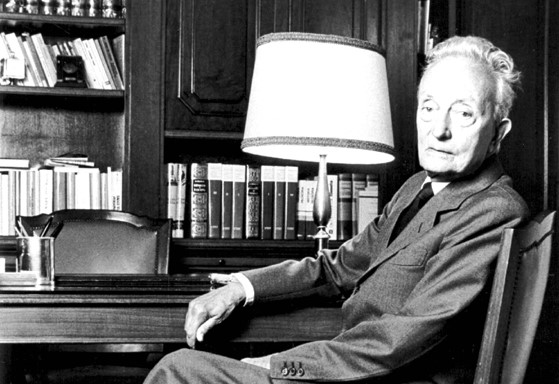Founder of positive existentialism: Who is Nicola Abbagnano?
According to Abbagnano, contemporary existentialism consists of two separate currents. However, according to him, both approaches are built on a negative basis. So he creates that third option.

Italian thinker. He is the founder of the "positive existentialism" movement in Italy. He was born in Salerno, in the south of Italy. He studied there. He entered the University of Naples and became a student of the famous sage and thinker of the time, Antonio Aliotta. He worked as a lecturer at the University of Turin. During this time, he published a philosophy journal called Rivista di Filosofia, which attracted great attention. Abbagnano first argued that a connection should be established between human life and philosophy and that philosophy should deal with the problems of life. He collected his thoughts on this subject in his first work, Le Sorgenti Irrazionali del Pensiero (“The Irrational Sources of Thought”). He elaborated this view in larger dimensions in his later works.
Nicola Abbagnano (15 July 1901 – 9 September 1990) was an Italian existential philosopher. Abbagnano defined his philosophy as "positive existentialism".
Abbagnano entered philosophy by defending existentialism against Croce and Gentile, who perpetuated Neo-Hegelianism in Italy. He was influenced first by Husserl's phenomenology, then by Kierkegaard, Jaspers, and Heidegger's understanding of existentialism. On the other hand, in his work La Struttura dell'Esistenza ("The Structure of Existence"), he claimed that he was not a new interpreter of German existentialism, but was in favor of an existentialist view with original content. Meanwhile, he sharply criticized French existentialists such as Marcel, Lavelle, and Le Senneve Sartre.
According to Abbagnano, contemporary existentialism consists of two separate currents. One is the substantive, atheistic existentialism advocated by Sartre, Jaspers, and Heidegger, and the other is the theological existentialism of Marcel, Lavelle, and Le Senne. The "impossibility of possibility" brought by the first view, and the necessity of possibility "contained by the second," are only superficially in the position of opposing principles. According to him, both approaches are built on the same negative foundation. Both ultimately overtly or covertly preclude the possibility.
The only valid attitude that can oppose the "negative existentialism" thus determined is positive existentialism, which adopts the "possibility of possibility" (or "transcendent possibility") as its principle. According to this last approach, which is Abbagnano's own proposal, a real possibility in human life, once chosen and realized, is one that remains possible, that is, open to new choices and realizations. In other words, this is a concept of "open possibility".
